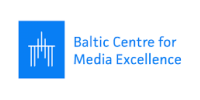How does the media in the Baltic States strive to maintain the characteristics of democratic culture in the face of challenges?
What is the role of the media in democratisation and how can the media promote democracy in a context of rapid social change and the current geopolitical turmoil? These questions are posed in the article “Baltic democracies beyond the EU accession: media as a bearer of democratic culture and means of resilience in navigating uncertainties” published on Journal of Contemporary European Studies by The Head and The Chief Investigator of DIGIRES, Professor of Public Communication at Vytautas Magnus University Auksė Balčytienė and her colleagues – Donata Bocullo, PhD student at the Department of Public Communication at VMU, and Kristina Juraitė, Professor of Public Communication and Co-founder of the UNESCO Chair on Media and Information Literacy for Inclusive Knowledge Societies at VMU.
The paper examines and discusses the conceptual ideas, as well as the concepts of vulnerability and societal resilience developed and tested in the DIGIRES and BECID projects.
The paper argues that the three Baltic countries (collectively and individually) provide an excellent case study to explore the potential for developing societal resilience in response to the evolving information risks and challenges facing liberal democracies across Europe. This paper therefore seeks to shed light on how media and journalistic institutions seek to preserve democratic culture and European values in the face of internal and external challenges and threats by drawing on examples from the media ecosystems in Lithuania, Latvia and Estonia.
The paper analyses the challenges to informed opinion-formation posed by a number of contemporary information disruptions, such as the onslaught of propaganda, disinformation and information manipulation, the growth of conflict-mongering and the accelerating polarisation and radicalisation of the public sphere, and the decline in trust in institutions.
It is argued that resilience must take into account the adaptability of both dimensions to the challenges of modern media infrastructure and individual public perception. Therefore, the paper discusses two dimensions of the so-called “Baltic resilience”: the media infrastructure dimension and the agency dimension, which refers to the individual capacity of the society to cope with multiple information disruptions in the Baltic region.
The paper points out that “though individual capacities matter highly in the opinion-formation process, they depend on the quality of the information environment and the media’s potential to facilitate active and informed citizenship”, therefore “it is essential to investigate how people use the news media and for what purposes and, precisely, how they assess their ability to recognize disinformation.” The latter aspect, according to the authors, “is particularly crucial as it signifies one’s capacity for ‘self-regulation’, i.e. the ability to control one’s political and social environment.”
The article draws on data from the Digital Society Project (2022), the Eurobarometer Surveys (2022), the European Social Survey (2020), the Media Pluralism Monitor (2023), and the Democracy Index (2024) of The Economist Intelligence Unit.
Comparative indicators on media and political performance are provided, including: Accession to EU and NATO indicators, Political life indicators, Media environment indicators, Response to disinformation indicators, and Media Literacy Index in: Lithuania, Latvia, Estonia, CEE countries, Visegrad countries and all 27 EU countries together.
You can find the article here.







